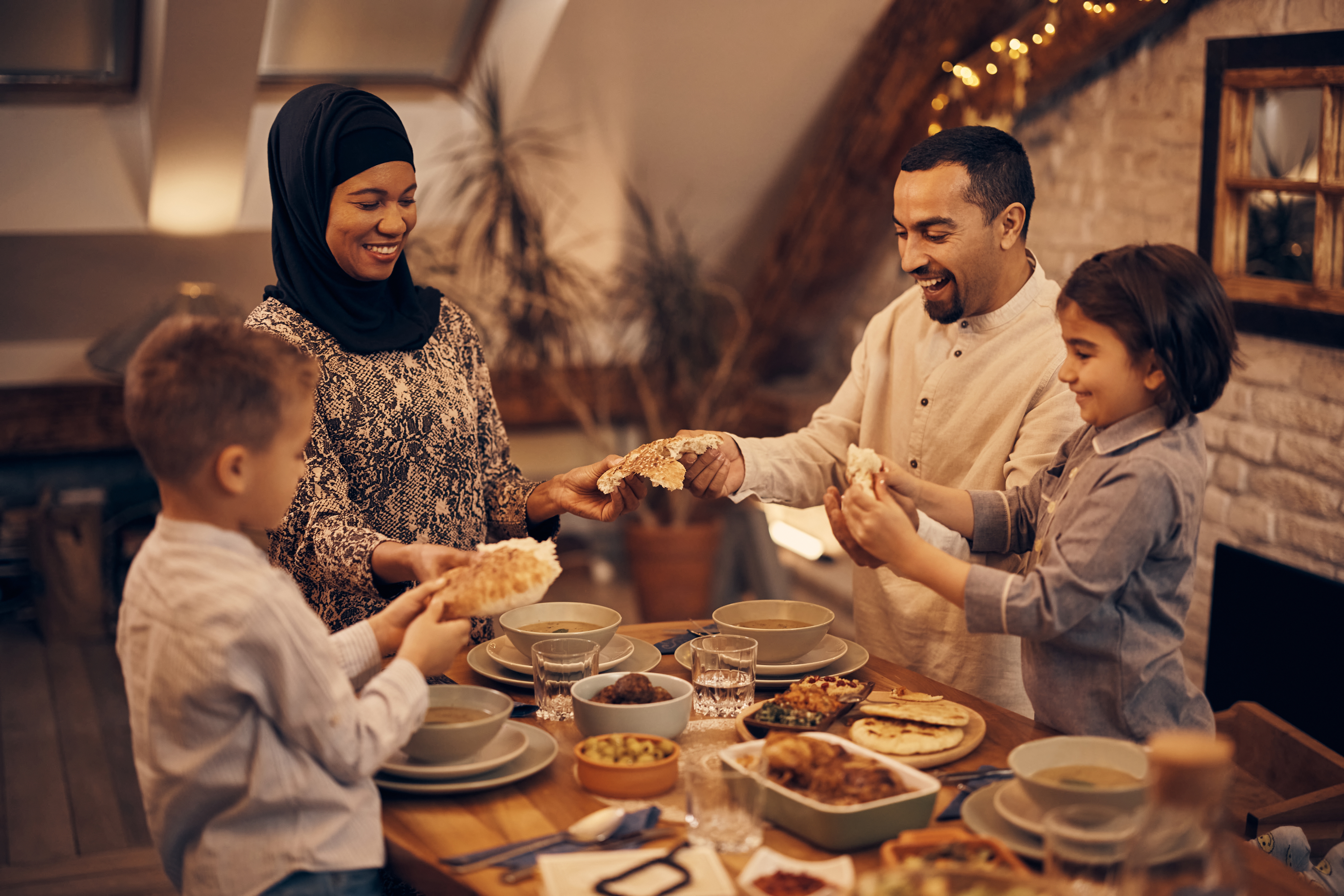Eid Celebrations within Foster Families
Date published
21 April 2023

As families and friends come together to celebrate, we would like to send our warmest wishes to our Muslim foster carers, children, and employees. We spoke to Bushra a Supervising Social Worker from our Three Counties Team at Nexus Fostering:
"Muslims across the world celebrate two Eid’s in a year. The first Eid is named ‘Eid al Fitr’ which is celebrated to mark the end of Ramadan. This Eid officially begins when the first sighting of the new moon is seen in the sky. The second Eid is named ‘Eid al Adha’, and this marks the end of the Hajj - the annual pilgrimage to the holy city of Mecca in Saudi Arabia’"
This year Ramadan started on Wednesday 22nd March evening and will finish on Friday 21st April evening. Ramadan is considered one of the holiest months for Muslims and is marked by a period of fasting when they abstain from food and drink between dawn and sunset, considered one of the Five Pillars of Islam. These are five principles that Muslims believe are compulsory acts ordered by God; the other pillars are faith, prayer, charity, and making the pilgrimage to the holy city of Mecca.
Eid al-Fitr ‘festival of breaking the fast’ is a joyous occasion. Bushra explains how she will be celebrating with her family:
"On the morning of Eid, I will dress in a new outfit and will read the special Eid prayer, and will give some money to charity. I will have lots of family around to celebrate with and we will eat yummy home-cooked food."
Eid is a timely opportunity to acknowledge the shared values which bind us together, particularly Muslim’s compassion and dedication to contribute to our community, charity, and philanthropy. As many religious festivals are centered around family traditions, Ramadan can be a difficult time for Muslim children in foster care. It can bring up traumatic or distressing memories, or cause feelings of sadness, anger, and loss as they celebrate away from their family, or some children may feel experience feelings of guilt for being happy and enjoying new traditions with their foster family.
We asked Bushra what her advice would be to foster carers to ensure their foster child is included in Eid celebrations:
"My advice would be for foster carers to speak to their young people about what they would like to celebrate as part of Eid. Carers should ask if they would like to read the Eid prayers and consider how ways to support this. Carers should be mindful that Eid is a celebration in which many families spend time together and it can be a period where our young people are unsettled and upset if this cannot happen. Carers should promote and support family time for our young people if they can do so. Wearing a new outfit and home-cooked food play a big part in Eid celebrations. A replication of this can help our young people to celebrate Eid"
We believe it is important to support the diversity within fostering and encourage our foster carers to celebrate with their Muslim foster child. You can support them in finding their local Mosque, providing a prayer mat, Quran, and Hijab (head scarf). At the end of Ramadan, supply them with fresh dates and a celebration with food and sweet treats.
Jehan & Ansar foster carers from the East Midlands speak about why Eid is so important to them and how they will be celebrating with their foster children.
'Eid is an incredibly important day in the Islamic Calendar as it marks the end of Ramadan, so we ensure that we have lots of fun things planned for the day and that there is plenty of food and treats to go around. The day allows us to come together as a family and show gratitude for all the blessings in our lives.
We adapt our Eid schedule and menu to suit the needs of our foster children, this means that we will add in activities that they enjoy, take them on trips to specific places (parks, arcades, farms etc) and add their favorite foods to the menu/order from their favorite restaurants. We also set up Eid decorations which the children help with and like to look at.'
We need more foster carers of different faiths and ethnic diversity to meet the cultural and religious requirements of children coming into care. We are committed to delivering support and direction through the early stages of the fostering journey, equipping foster carers with the education, information, and resources to create a nurturing environment that allows Muslim children in care to develop their faith and identity.
If you would like more information on fostering contact your local office.
Fostering insights
21 April 2023